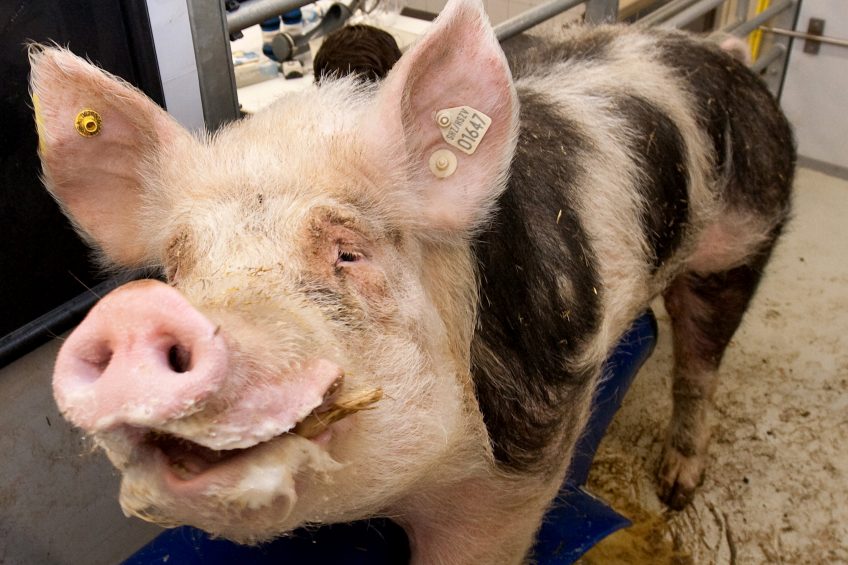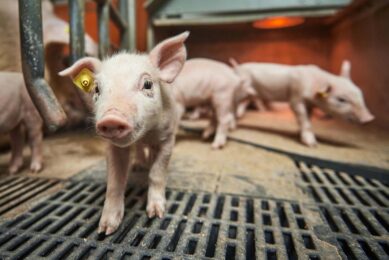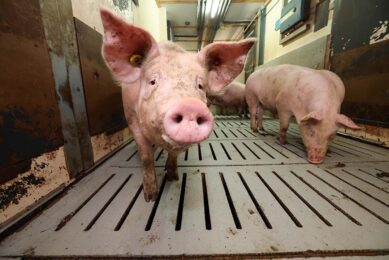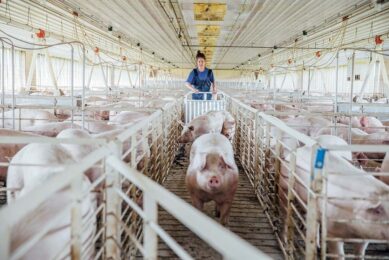Crossbred information is important when breeding pigs

Selecting purebred animals based on crossbred performance instead of purebred performance has a large impact on the genetic improvement in the purebred animals.
That was the message researchers from Wageningen University and Research (WUR) recently published in an invited review in the Journal of Animal Science.
Selection takes place in purebred animals
In a press article on the WUR website, the researchers explain that production animals in pigs are generally crossbred animals, while selection takes place in purebred animals. That is why the genetic correlation between purebred and crossbred performance, known as the purebred-crossbred correlation, is very important.
In the scientific publication, the scientists therefore discussed the theory, estimates and implications of this purebred-crossbred correlation. The paper showed that the purebred-crossbred correlation likely differs from 1 for a lot of traits, indicating that crossbred information is very important to optimise breeding programmes.
Genetic correlations
The researchers explained that the purebred-crossbred correlation (rpc) is the genetic correlation between purebred and crossbred performance. In the press article, they wrote: “When rpc is 1, purebred and crossbred performance are effectively the same trait. When rpc is lower than 1, it means that the best purebred animals don’t necessarily produce the best crossbred offspring.”
They continued, “Therefore, it is more important to use crossbred information for selecting the best purebred animals when rpc is low. In this paper, it is shown theoretically that selecting purebred animals based on crossbred performance instead of purebred performance has a large impact on the genetic improvement in the purebred animals.”
3 different components underlying rpc
The scientists distinguished 3 different components underlying rpc:
1) Genotype by genotype interactions, since purebreds and crossbreds have different genetic backgrounds;
2) Genotype by environment interactions, since purebreds and crossbreds are generally housed in different environments; and
3) Differences in trait measurements.
Estimates and implications
For the review, 201 rpc estimates in pigs from 27 studies were considered. The studies estimated the rpc for different purebred-crossbred combinations and a wide range of traits, that were divided in trait categories. The average rpc estimate was 0.63 which is considerably lower than 1, with 50% of the estimates between 0.45 and 0.87.
For all different trait categories, e.g. ‘growth’, ‘meat amount’, ‘meat quality’, ‘feed’, and ‘fertility’, the average rpc was around 0.6, the researchers found. This indicated that rpc is likely different from 1 and that for a lot of traits, crossbred information is very important to improve crossbred performance.
Impact of the different components on rpc
The press article concluded to state: “Genotype by environment interactions appeared to have a smaller contribution to rpc than genotype by genotype interactions. More research regarding the impact of the different components on the rpc will help to improve breeding programmes. Future studies are advised to carefully consider in which environment phenotypes are collected, to estimate separate rpc values for different pure lines, and to genotype the animals to improve the power to estimate rpc.”
The paper in the Journal of Animal Science was written by researchers from Wageningen University and Research, the Netherlands. Author Yvonne C.J. Wientjes is supported by the Netherlands Organisation of Scientific Research (NWO) and the Breed4Food consortium partners Cobb Europe, CRV, Hendrix Genetics, and TopigsNorsvin. Mario P.L. Calus is supported by Feed-a-Gene, a project that has received funding from the European Union’s Horizon 2020 research and innovation programme.
Join 18,000+ subscribers
Subscribe to our newsletter to stay updated about all the need-to-know content in the pigsector, three times a week. Beheer
Beheer










 WP Admin
WP Admin  Bewerk bericht
Bewerk bericht